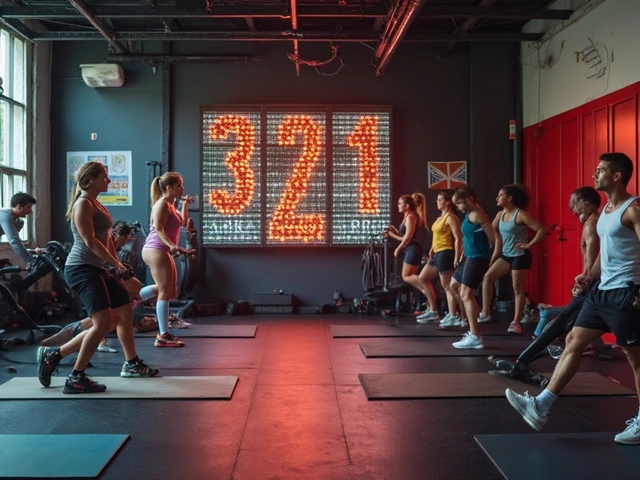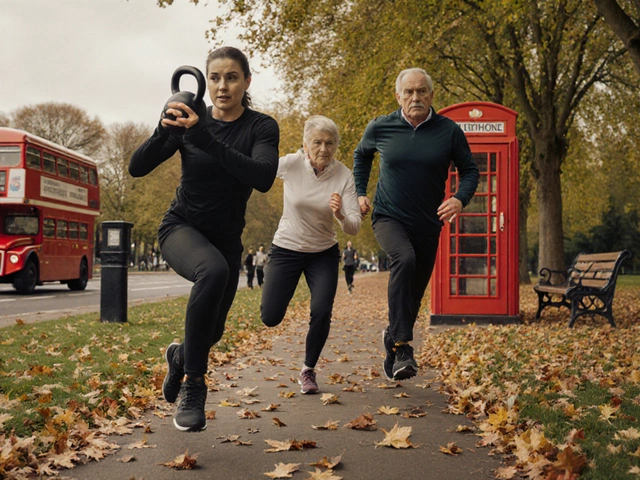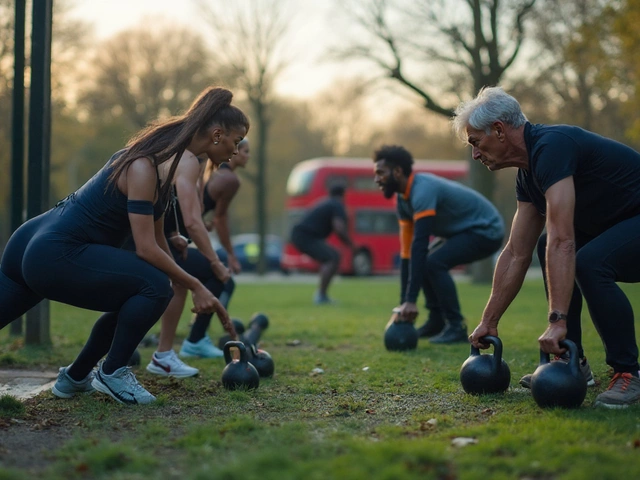Physical Health Tips: Boost Your Game and Well‑Being
When talking about physical health tips, simple actions that improve fitness, reduce injury risk and keep energy levels high. Also known as wellness strategies, they are especially important for anyone who spends long hours on the field. exercise, planned movement that challenges the heart, muscles and joints forms the backbone of any plan, while nutrition, the right balance of food, fluids and timing fuels those workouts. Finally, recovery, rest, sleep and active regeneration ensures the body can adapt and grow stronger. In short, physical health tips encompass exercise routines, require proper nutrition, and are amplified by smart recovery.
Why Physical Health Matters for Referees
Referees need sharp focus, quick footwork and the stamina to keep up with fast‑paced games. A typical match can demand intermittent sprints, sudden changes of direction and long periods of standing. That mix puts stress on the cardiovascular system, lower‑body muscles and the spine. By following targeted exercise drills, you develop the leg strength and agility needed for those bursts. Complementary nutrition—like carbohydrate‑rich meals before a game and protein after—helps maintain blood sugar and repair muscle tissue. Recovery habits such as stretching, foam rolling and adequate sleep cut down on soreness, letting you show up fresh for the next fixture. When these three pillars click, the risk of common injuries—ankle sprains, hamstring pulls, and lower‑back strain—drops dramatically.
Another often‑overlooked pillar is injury prevention, proactive measures like mobility work, proper footwear and pre‑game warm‑ups. This connects directly to exercise because dynamic warm‑ups prepare muscles for the high‑intensity demands of officiating. It also links to nutrition; staying hydrated and maintaining electrolyte balance reduces cramp risk. Finally, good recovery—especially consistent sleep—helps the nervous system stay responsive, which is key for split‑second decision‑making during a game. In essence, injury prevention influences physical health tips by reshaping how you train, eat and rest.
For referees who juggle other jobs or family commitments, time efficiency matters. A minimalist full‑body routine—think squats, lunges, push‑ups and planks—can be done in 20‑30 minutes, three times a week, and still deliver the strength needed on the pitch. Pair this with quick nutrition hacks like a banana and a handful of nuts 30 minutes pre‑match, and a post‑game shake with whey protein. Recovery can be as simple as a 10‑minute foam‑roll session and a short meditation to lower cortisol levels before bedtime. These bite‑size habits fit into busy schedules while still delivering real performance gains.
Technology also plays a role. Wearable trackers give instant feedback on heart rate zones, step count and recovery scores. By reviewing this data you can adjust exercise intensity, ensure you’re eating enough carbs on high‑load days, and spot early signs of fatigue. This data‑driven approach ties back to the core idea that physical health tips require both knowledge and tools—knowledge of what to eat and how to move, and tools that tell you whether you’re on track.
All this information builds a solid framework that you can customize. Whether you’re a brand‑new referee learning the ropes or a seasoned official looking to fine‑tune performance, the mix of exercise, nutrition, recovery and injury prevention creates a roadmap for lasting health. Below you’ll find a curated collection of articles that dive deeper into each of these areas, from marathon pacing guides to daily workout pros‑and‑cons, and even gear‑selection advice. Keep reading to uncover actionable steps that will help you stay fit, avoid setbacks, and enjoy every whistle you blow.
7 Practical Tips for Good Physical Health That Actually Work
Seven practical, science-backed habits for better health: move more, lift, eat smarter, sleep well, hydrate, manage stress, and keep up prevention. Simple steps, real results.





